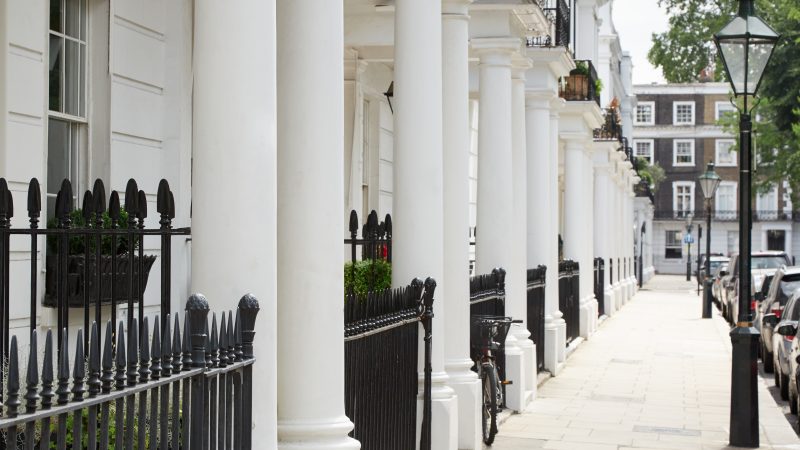
If you fancy a look at how the other half live, just take a stroll down Phillimore Gardens, the most expensive street in Britain. 18th century mansions line the road. Bentleys and Ferraris are everywhere. Uniformed staff fuss around the courtyards. The gardens back onto Holland Park. One house is even offering private swimming lessons – in its basement. The average price of a home here? £24m. You could buy an entire street in Hodge Hill for that.
The wealth of the top 1% has skyrocketed in recent years
Phillimore Gardens illustrates a brutal truth. While Britain is mired in the worst cost-of-living crisis since the 1950s, the super rich have never had it so good. This week, the Sunday Times Rich List revealed that the wealth of Britain’s billionaires has risen – in what has been called the end of the billionaire boom – by £30bn.
Yet this is just half the story. This week, new House of Commons Library research based on World Inequality Data for the all-party parliamentary group on inclusive growth shows that, since 2010, the wealth of the top 1% has increased by an extraordinary 31 times the wealth gains of Britain’s bottom 99%.
That might help explain why 2021 saw record sales of super-yachts – more than double the number sold in 2019. Last year’s sales of luxury Rolls Royce cars totalled 6,021 cars, the highest annual figure in its 119-year history. And this year, sales of private jets are likely to reach their highest ever level as the global fleet of private jets has more than doubled in the last two decades.
The super rich are now seen as more powerful than government
This modern tale of two nations, rich and poor, is now profoundly changing people’s perceptions of the anatomy of power in Britain – and who voters now think call the shots since 2018.
In our polling work – with the Policy Institute, Kings College – we reveal that, incredibly, the public now believe the super rich are more powerful than national government. Today, 39% of the UK public rank the very rich as having the most power in Britain, almost twice as many as those who think governments call the shots. Yet, just five years ago, when asked to pick the most powerful from a list, the public were more likely to say governments (33%) than the very wealthy (29%). In just five years, the public feels the super rich have taken over.
The power of the people to map out and influence the future of their country – their future – is now being called into question. Almost no one we polled saw the ‘ordinary people’ as wielding the most influence.
These changes in our country are now also altering the way people see opportunity. Most Brits now believe that Britain has become an ‘inheritocracy’ where inheritance, not hard work, is the only way to get on in life. The vast majority of people in our poll now believe great wealth is explained by the family you’re born into, the availability of useful networks or access to a good education, not ‘hard work’ or ‘natural talent.’
We need to think big to address the growing wealth gap
When the richest are multiplying their wealth 31 times faster than everyone else, we know that something is going profoundly wrong in our economy. It simply can’t be right that we have record order books for super-yachts, luxury cars and private jets when we have food banks in constituencies like mine that are literally running out of food.
We can’t go on like this. So, as the political parties start to write their manifestos for the next election, we have to think big. That is why a cross-party group of MPs is coming together with the Policy Institute at Kings College, the Fairness Foundation and others to pin down the ideas that all sides can agree will help rebuild a wealth-owning democracy. Because right now, people fear our economy – and our democracy – is in deep trouble.




More from LabourList
Antonia Romeo appointed to lead civil service as new Cabinet Secretary
‘If Labour is serious about upskilling Britain, it must mobilise local businesses’
Stella Tsantekidou column: ‘What are we to make of the Labour Together scandal?’